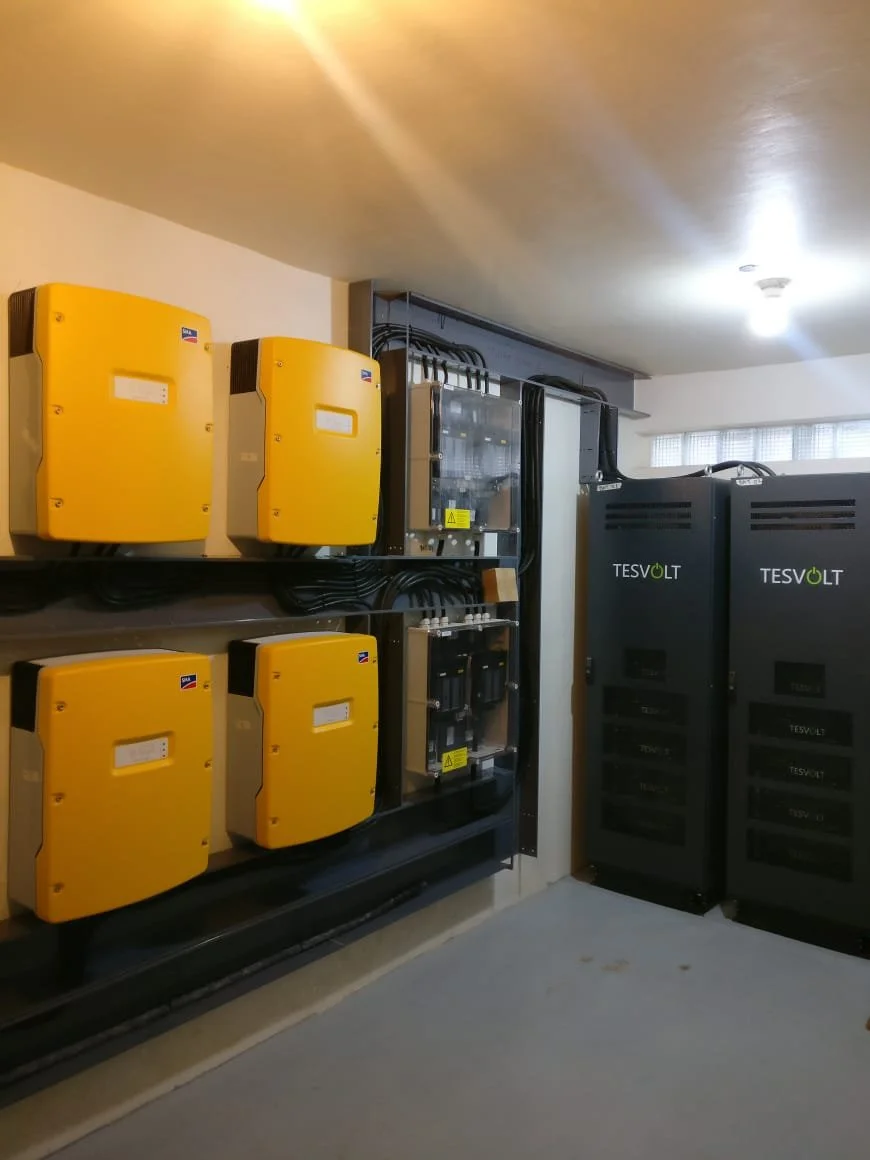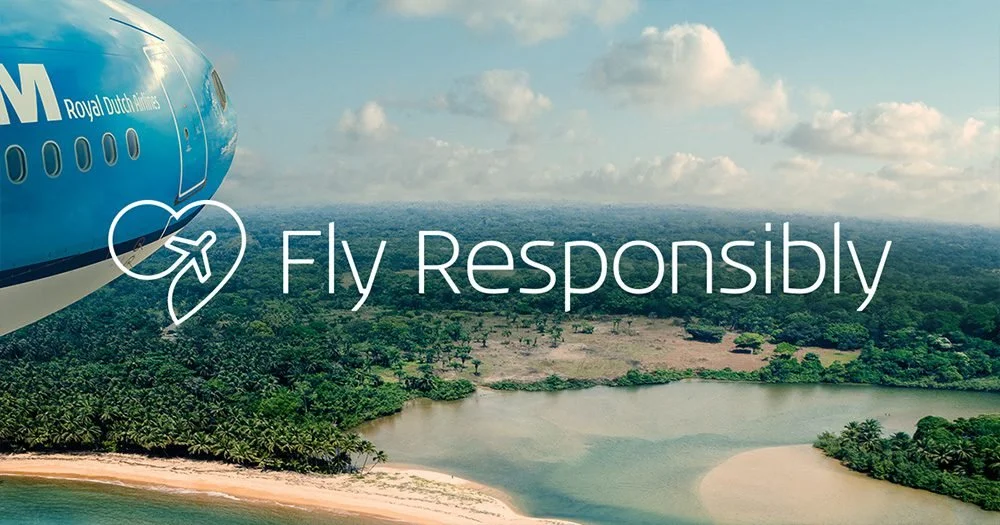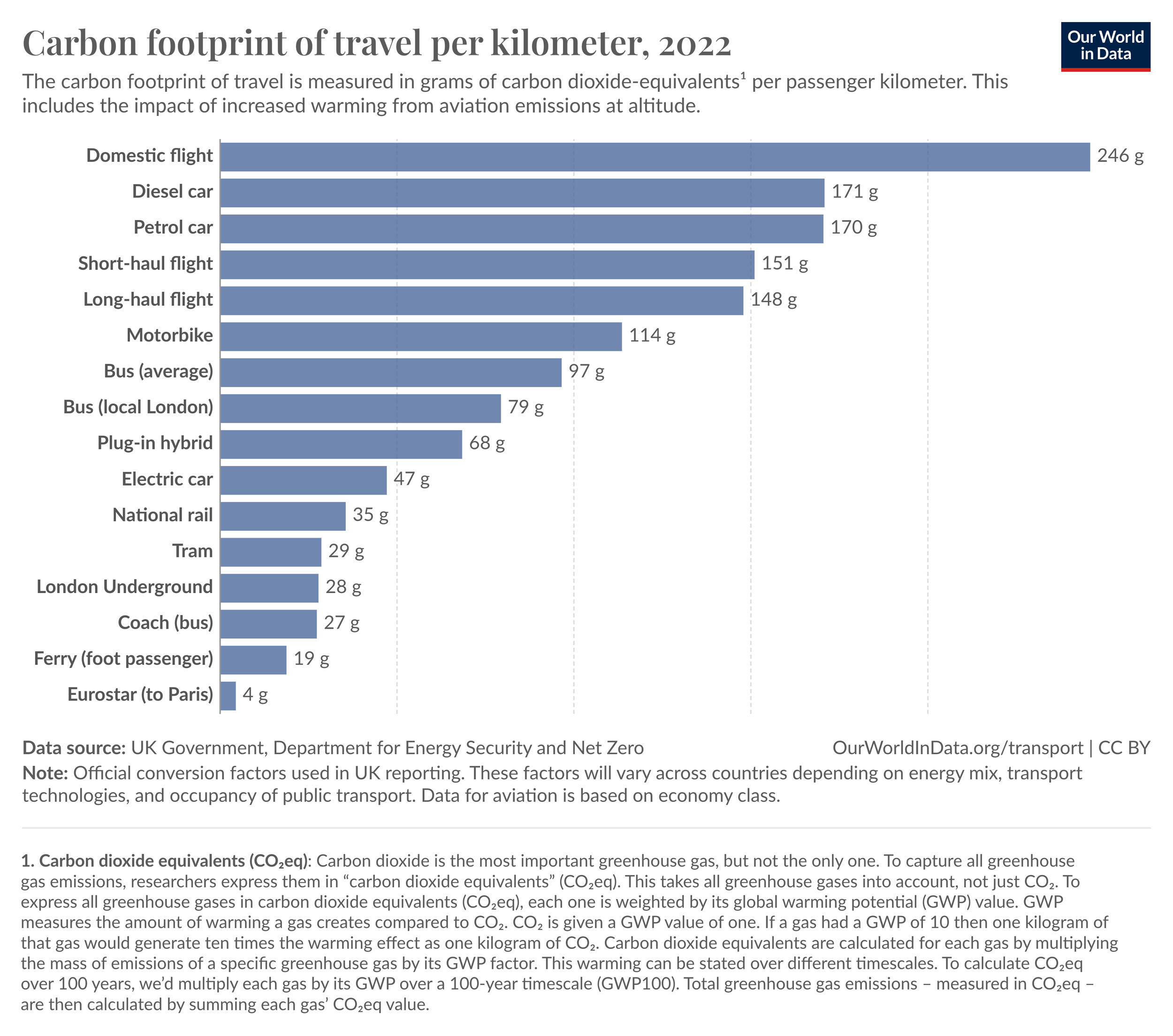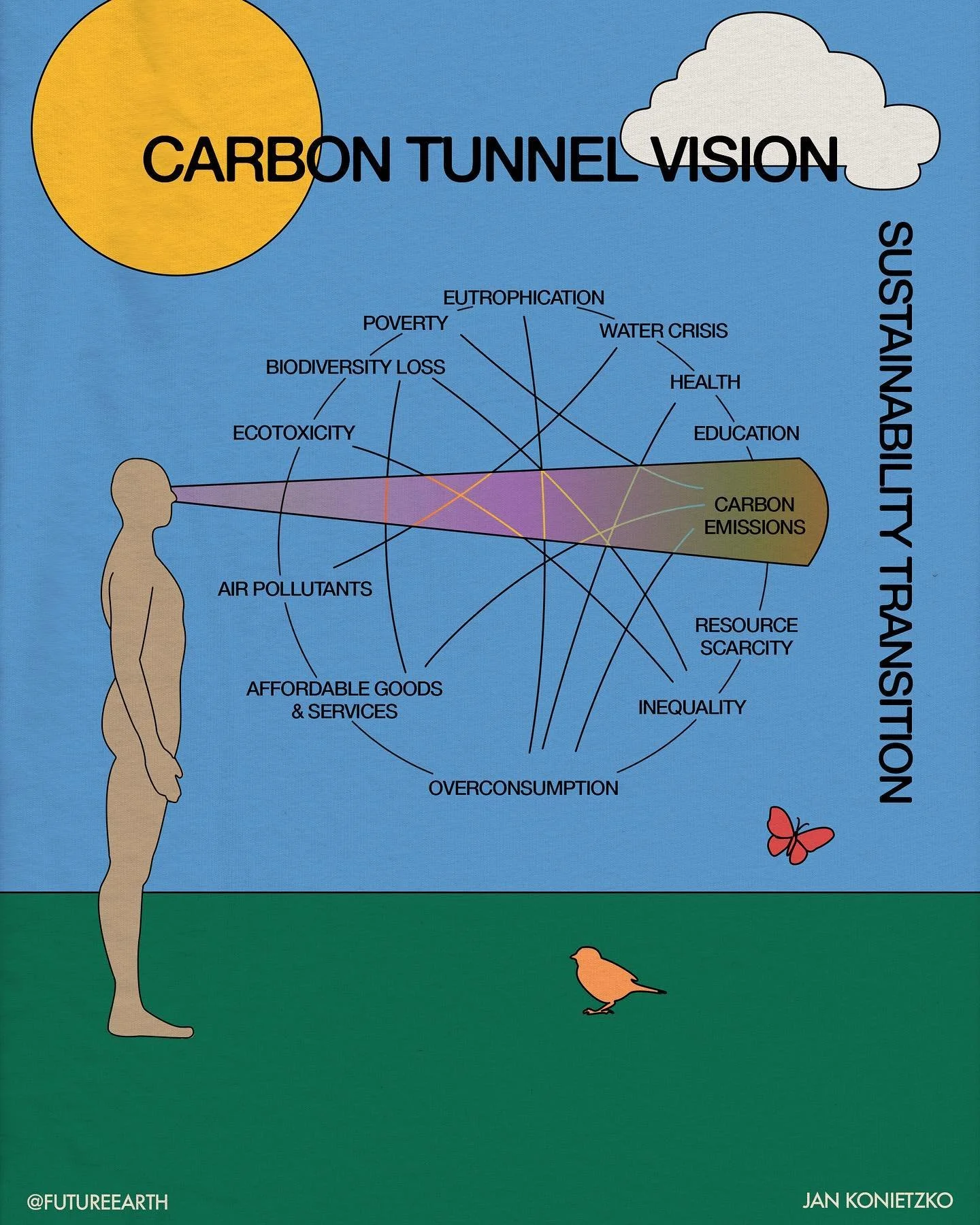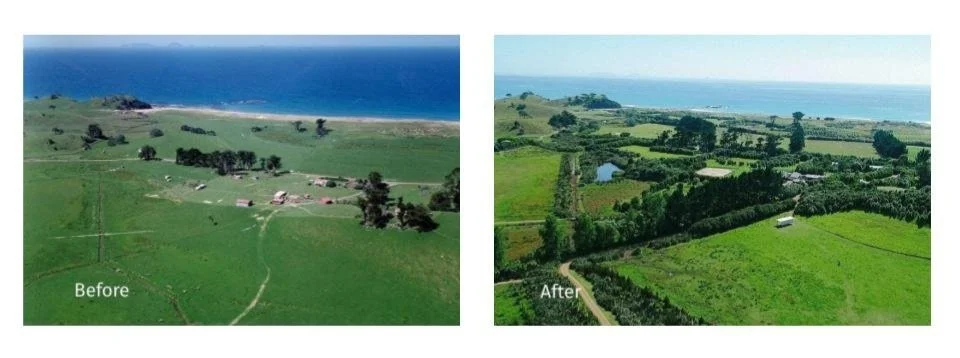The Travel Industry's Carbon Conundrum: 5 Uncomfortable Facts
Image by Matthias Heyde via Unsplash
Behind the glamor of international flights and luxury accommodations lies a pressing concern: greenhouse gas (GHG) emissions.
The travel industry faces an inconvenient truth: its environmental impact must be addressed.
As we enter the second year of Asia Sustainable Travel (AST), my co-founder and I have learned a great deal about today's solutions to the GHG emissions challenges in the travel sector.
We have applied some of these solutions to monitoring and reducing GHG emissions at our company. Many of these learnings have also involved unlearning and making course corrections for us.
We acknowledge that GHG emissions and GHG-related topics are a set of complex issues. I hope that by sharing our observations and learnings with you as openly and honestly as we can, we'll be able to accelerate the industry's transition to the new climate economy.
LEARNING 1: Many GHG offsetting programs are opaque and ineffective, highlighting the need for urgent reform.
As important as neutralizing and offsetting GHG emissions to mitigate the effects of climate change, it is not a silver bullet to mitigate the effects of climate change. This is because there are major discrepancies between what is promised and what is delivered by GHG offsetting companies.
In early May 2024, Reuters reported that staff at the U.N.-backed Science-based Targets initiative (SBTi) found GHG offsetting is largely ineffective in a preliminary draft of an official document. This came days after the SBTi board announced a plan to greenlight companies to offset greenhouse gas emissions from their supply chains with carbon credits.
Businesses need to understand that offsetting alone is not a cure-all for achieving carbon neutrality.
Mimi Nguyen, COO at Handprint, a regenerative economy consultancy, emphasized in an interview with AST that despite numerous offsetting programs, carbon emissions are expected to rise by 16% by 2030.
The first crucial step is to reduce emissions from the start.
Charlie Cotton, Founder of the carbon footprint consultancy ecollective, stresses that companies have to reduce greenhouse gas emissions by over 90% before starting to offset them.
In his opinion, travel companies would benefit more by reinvesting their GHG offsetting budget back into their businesses. They can start by reducing their energy usage and installing solar panels, switching their transport fleet from fossil-fuel-powered to electric vehicles (more on this in Learning 3) and improving the energy efficiency of their buildings.
Left: Solar PV Battery on Cempedak Island in Indonesia; Right: 25 percent of Batu Batu’s energy was powered by its on-property solar panels, supplied by Canopy Power.
LEARNING 2: Misleading sustainability claims can lead to widespread skepticism and erosion of consumer confidence.
As a traveler, I was impressed by leading travel companies showcasing their carbon-neutral certification or labels. However, I later realized that I was falling victim to their greenwashing schemes.
With hundreds of eco certifications and labels in the market, many of them require companies to only self-audit and self-report to meet the requirements. A good example of this model is Booking.com's ‘sustainable program’. However, the online travel agency has recently been asked by the Netherlands Authority for Consumers and Markets to amend their “possibly misleading sustainability claims.”
In May 2023, a lawsuit was filed against Delta in the U.S. State of California for the company’s “false and misleading” claim as the “world’s first carbon-neutral airline”. In 2024, KLM lost a court case for vague environmental claims and painting “an overly rosy picture”of its sustainable aviation fuel.
Cases like these engage in greenwashing that could lead to a series of negative consequences.
First, they exploit their customers’ good intentions, which is essentially an ethical breach. Deceived consumers believe they are making a beneficial contribution to environmental and social issues by using these companies’ services. This false sense of contribution can reduce the urgency and drive to look for and support truly sustainable choices.
Frequent exposure to greenwashing can lead to widespread skepticism among consumers about all environmental claims, casting doubt on even legitimate sustainable efforts. This skepticism may erode customer confidence in the travel industry's potential to be sustainable.
Companies that genuinely invest in sustainable practices may find themselves at a competitive disadvantage compared to those that cut corners and falsely market themselves as green.
Left: KLM’s ‘Fly Responsibly’ campaign was the center of a Dutch court case, photo by KLM. Right: Delta’s ‘carbon neutral’ marketing on its in-flight napkins, photo via Live and Let’s Fly.
LEARNING 3: We trade short-term harm for long-term benefits.
The global shift to electric vehicles (EVs) as a solution to reduce greenhouse gas emissions requires a substantial increase in the mining of rare minerals such as lithium, nickel, and cobalt. These minerals are essential for producing the rechargeable batteries that power EVs.
However, the mining industry is often associated with a myriad of social and environmental issues, including biodiversity loss, child labor, community displacement, and the release of toxic waste, leading to disastrous consequences.
A recent report from Climate Rights International accentuates the detrimental impact of a large nickel mining and processing project on Indonesia's Halmahera Island. This project has resulted in widespread deforestation, displacement of indigenous communities, and contamination of water bodies, severely impacting the lives and livelihoods of local people.
The ethical dilemma of EV and battery-operated technology compels us to look beyond resource replacement to reduce consumption overall. We cannot effectively address the climate crisis by solely increasing mining activities. Instead, we must shift our focus to reducing consumption and embracing a circular economy model.
Source: Our World in Data
LEARNING 4: Focusing solely on GHG emissions when addressing climate change is a dangerously narrow approach.
Nguyen emphasizes that hospitality and travel companies need to look at sustainability through a wider lens, beyond “doing less bad” and consider the bigger picture to start doing “more good” and respecting planetary boundaries.
She believes that professionals in travel and hospitality can always gain a deeper understanding of how ecosystems are interconnected and the significance of preserving and restoring them. Nguyen stresses that simply reducing greenhouse gas emissions is not enough to ensure the planet's health.
Companies also need to remove greenhouse gasses from the atmosphere and consider broader environmental and social issues such as biodiversity and freshwater preservation, air pollution prevention, and social justice.
Illustration by Future Earth, inspired by Jan Koneitzko, sustainability advisor and Research Fellow at Circular X,
Many members of The Long Run Global Ecosphere Retreats, including Tahi, Cottar’s 1920s Safari Camps, and Nikoi Island are prime examples of holistic approach to sustainability that is built on biodiversity restoration, indigenous planting, and proactive community engagement and investment.
Tahi in 2004 vs. 2023. Photos by: Tahi, North Island, New Zealand
Started by a group of environmental enthusiasts to preserve the land from environmental offenders, Masungi Georeserve in the Philippines has been opened up for visitors to ignite their interest in nature conservation and tourism.
LEARNING 5: Despite sustainability gaining traction in tourism, (sadly) many businesses still view it as a cost.
Nguyen points out that a large of number of businesses usually think of sustainability as a cost instead of a lever of growth, and in the long run, it may not be a winning business mindset. A recent Bain report highlights that APAC customers demand more conscious and responsible brands at a record level.
Additionally, tourism fundamentally depends on the preservation of natural landscapes and cultural heritage for exploration and enjoyment. Therefore, the industry collectively has to strike a balance between bolstering the economies and livelihoods dependent on travel and fulfilling its role as a steward of the environment and culture.
That said, the cost of climate inaction is far too great to ignore.
When it comes to getting started, Cotton points out that from his experience, the most time-consuming part of a project at his company is persuading companies of the cost benefits of reducing GHG emissions.
His team's first step is to map out different ways a company can reduce emissions, their associated costs and expected return on investment (ROI). From there, his team asks brands to determine which idea (s) will make their customers happier. This way of presenting an achievable task list simplifies how brands can get started on reducing GHG emissions.
Following that, Cotton recommends companies work toward two long-term targets:
Reduce the average energy use per customer, per night from the hotel. Year on year, this will lower your running costs per customer.
Look into getting more energy from renewable sources by switching from diesel generators to solar panels and cooking with electricity instead of gas.
Read more about energy use reduction and clean energy transition here.
TL; DR
There are no perfect solutions to tackle GHG emissions. But as Nguyen emphasized, the true cost of inaction exceeds the cost of maintaining the status quo.
There are exemplary success stories of travel businesses and hotels that are driving the biodiversity-positive business model to the forefront of every sustainability conversation in the industry.
It is existentially important for businesses to remain agile and tactful by learning from others’ mistakes and successes to address the most urgent crisis of our time.
Here are top 5 actions that the industry must consider taking:
1. Reform GHG Offsetting Programs: Many existing programs lack transparency and are ineffective. Consider reducing emissions by over 90% before offsetting them.
2. Beware of Greenwashing: Misleading sustainability claims erode consumer trust and provide an unfair advantage to companies that cut corners. Genuine efforts must be transparent and verifiable.
3. Be Mindful of Short-term Harm for Long-term Benefits: The transition to EVs demands rare minerals, causing social and environmental harm. It's crucial to implement a circular economy and reduce consumption.
4. Look Beyond Carbon Emissions: Companies must adopt a broader view of sustainability by addressing biodiversity, water preservation, pollution, and social justice.
5. Approach Sustainability as Growth, Not Cost: Sustainability is essential for long-term business viability. Reducing emissions can also lead to enhanced customer satisfaction and brand loyalty.
How have we applied these learnings to the operation of AST?
AST is a fully remote company. The largest share of our carbon emissions comes from our team’s regional conferences and our flagship community events - AST Forums.
We track and measure our travel carbon emissions by using Sustainable Travel International’s carbon footprint calculator. Understanding this data helps us continue to learn how to choose low-carbon travel modes and routes.
We also collaborate with OneSeed, a tree-planting organization to reward AST Briefing subscribers and AST Forum attendees. We selected to partner with the OneSeed team due to their responsive approach to sustainability and their excellent level of business transparency.
Additionally, we contribute 1 percent of our revenue (not profit) to support the cleanup efforts of Southeast Asia’s rivers and seas via Saigon Xanh, Sungai Watch, and Seven Clean Seas.



